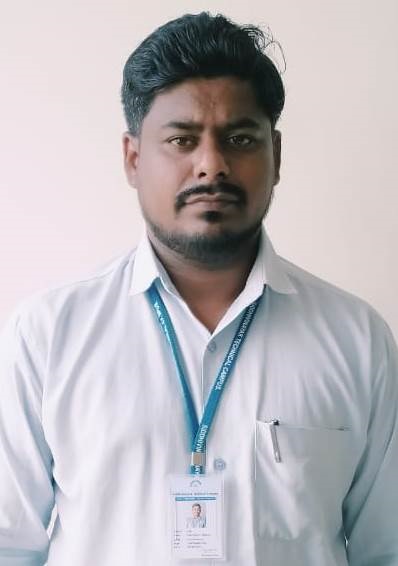CIVIL ENGINEERING DEPARTMENT
VISION
To produce excellence engineers that brings out with high technical competencies and promotes high-end research to meet the current and future challenges in professional and research assignments in civil engineering and allied fields.
MISSION
- To impart knowledge with emphasis on the development of leadership qualities in students.
- To provide quality education and to encourage students for higher education, various career enhancing courses and competitive exams for a successful career in civil engineering field.
- To have regular interaction with industry and offer solutions to their problems.

Prof. D. G. Wankhede
BE, ME (Structure), PhD (Pursuing)HOD CE
Our vision is to produce excellent engineers that brings out with high technical competencies and promotes high-end research to meet the current and future challenges in professional and research assignments in civil engineering and allied fields. Our department is ready to provide students with fundamental knowledge of engineering and build up career of students in government and private sector. We also plan to develop leadership skill, entrepreneurial skills in students. We also help to finding out knowledge inside of them and according to that we will guide for making bright career in future. I look forward for preparing my students to face the challenges regarding engineering and technology, research area, becoming a successful entrepreneur who might be helpful for the betterment of the society and our nation

Prof. A. B. Adhao
BE, ME.(Civil Engineering)-

Prof. V. I. Chavan
BE, ME (Civil Engineering)-

Prof .V. R. Borde
BE (Civil Engineering)-

Prof. Rutuja Pundkar
BE (Civil Engineering)-

Prof. Chaitali N. Dhanokar
BE (Civil Engineering)-
PO'S
PO1:
Engineering knowledge: Apply the knowledge of mathematics, science, engineering fundamentals, and an engineering specialization to the solution of complex engineering problems.
PO2:
Problem analysis: Identify, formulate, review research literature, and analyze complex engineering problems reaching substantiated conclusions using first principles of mathematics, natural sciences, and engineering sciences.
PO3:
Design/development of solutions: Design solutions for complex engineering problems and design system components or processes that meet the specified needs with appropriate consideration for the public health and safety, and the cultural, societal, and environmental considerations.
PO4:
Conduct investigations of complex problems: Use research-based knowledge and research methods including design of experiments, analysis and interpretation of data, and synthesis of the information to provide valid conclusions.
PO5:
Modern tool usage: Create, select, and apply appropriate techniques, resources, and modern engineering and IT tools including prediction and modeling to complex engineering activities with an understanding of the limitations.
PO6:
The engineer and society: Apply reasoning informed by the contextual knowledge to assess societal, health, safety, legal and cultural issues and the consequent responsibilities relevant to the professional engineering practice.
PO7:
Environment and sustainability: Understand the impact of the professional engineering solutions in societal and environmental contexts, and demonstrate the knowledge of, and need for sustainable development.
PO8:
Ethics: Apply ethical principles and commit to professional ethics and responsibilities and norms of the engineering practice.
PO9:
Individual and team work: Function effectively as an individual, and as a member or leader in diverse teams, and in multidisciplinary settings.
PO10:
Communication: Communicate effectively on complex engineering activities with the engineering community and with society at large, such as, being able to comprehend and write effective reports and design documentation, make effective presentations, and give and receive clear instructions.
PO11:
Project management and finance: Demonstrate knowledge and understanding of the engineering and management principles and apply these to one’s own work, as a member and leader in a team, to manage projects and in multidisciplinary environments.
PO12:
Life-long learning: Recognize the need for, and have the preparation and ability to engage in independent and life-long learning in the broadest context of technological change.
PSO'S:
1. PSO1: Professional Skills- Familiarize civil engineering components and systems.
2. PSO2: Intellectual Skill – Apply and Understand modern management and construction techniques to complete projects within the stipulated period and funds.
3. PSO3: Successful Career and Entrepreneurship – Enhancing the employability skills by making the students capable of qualifying competitive examinations related to civil engineering also providing platforms in creating innovative career paths to be an entrepreneur and a zest for higher studies.
Laboratory Details
| Sr No | Name of Laboratory | Room No. |
|---|---|---|
| 1 | Strength of Material Lab | W2-6 |
| 2 | Material Testing Lab (RCC & TRE) | W2-5 |
| 3 | Surveying Lab | W1-4D |
| 4 | Building Construction & Material & Computer Lab | CF-3 |
| 5 | Geotechnical Engineering & Engineering Geology Lab | CG-10 |
| 6 | Environmental Engineering Lab | BG-5 |
